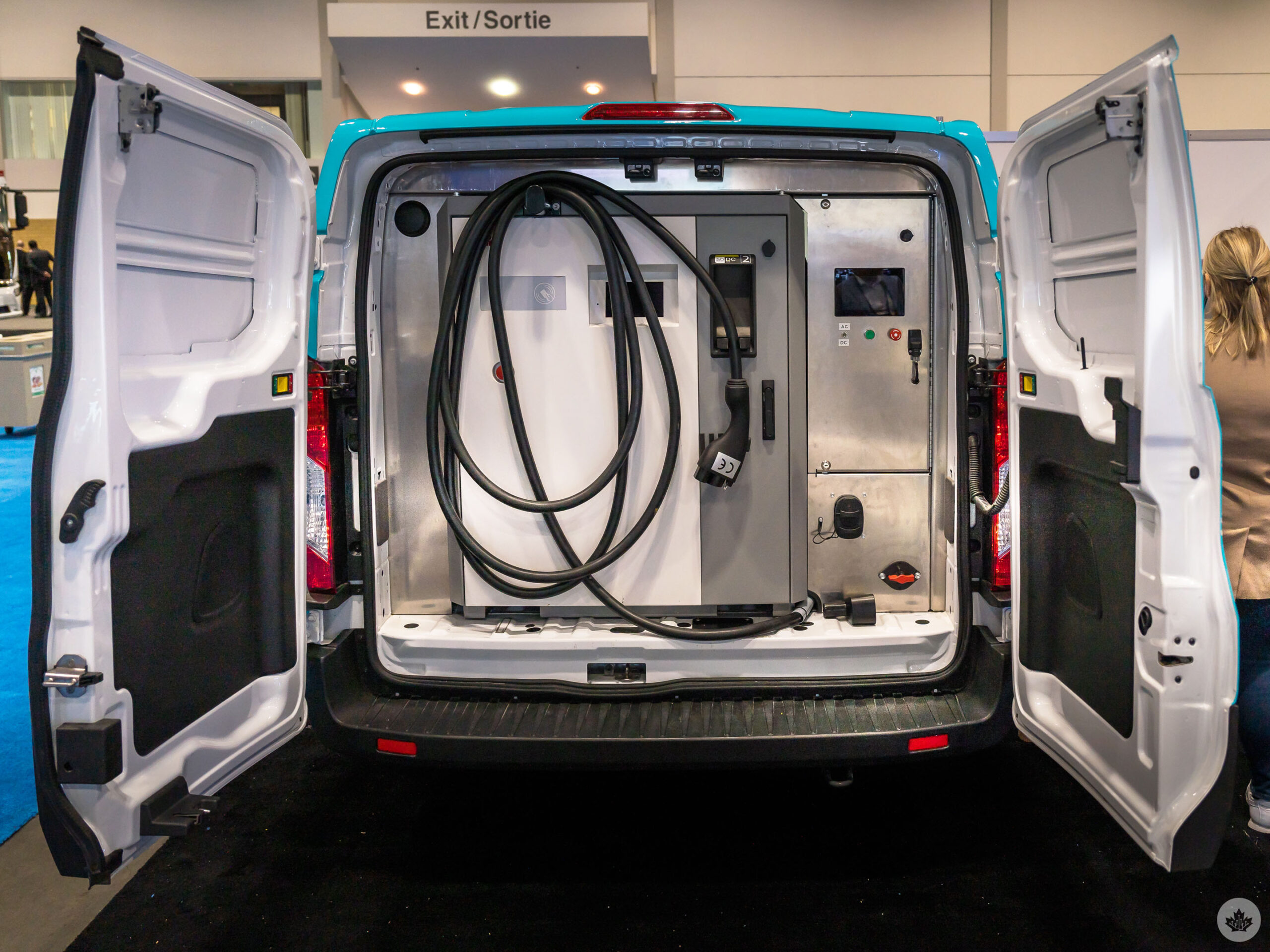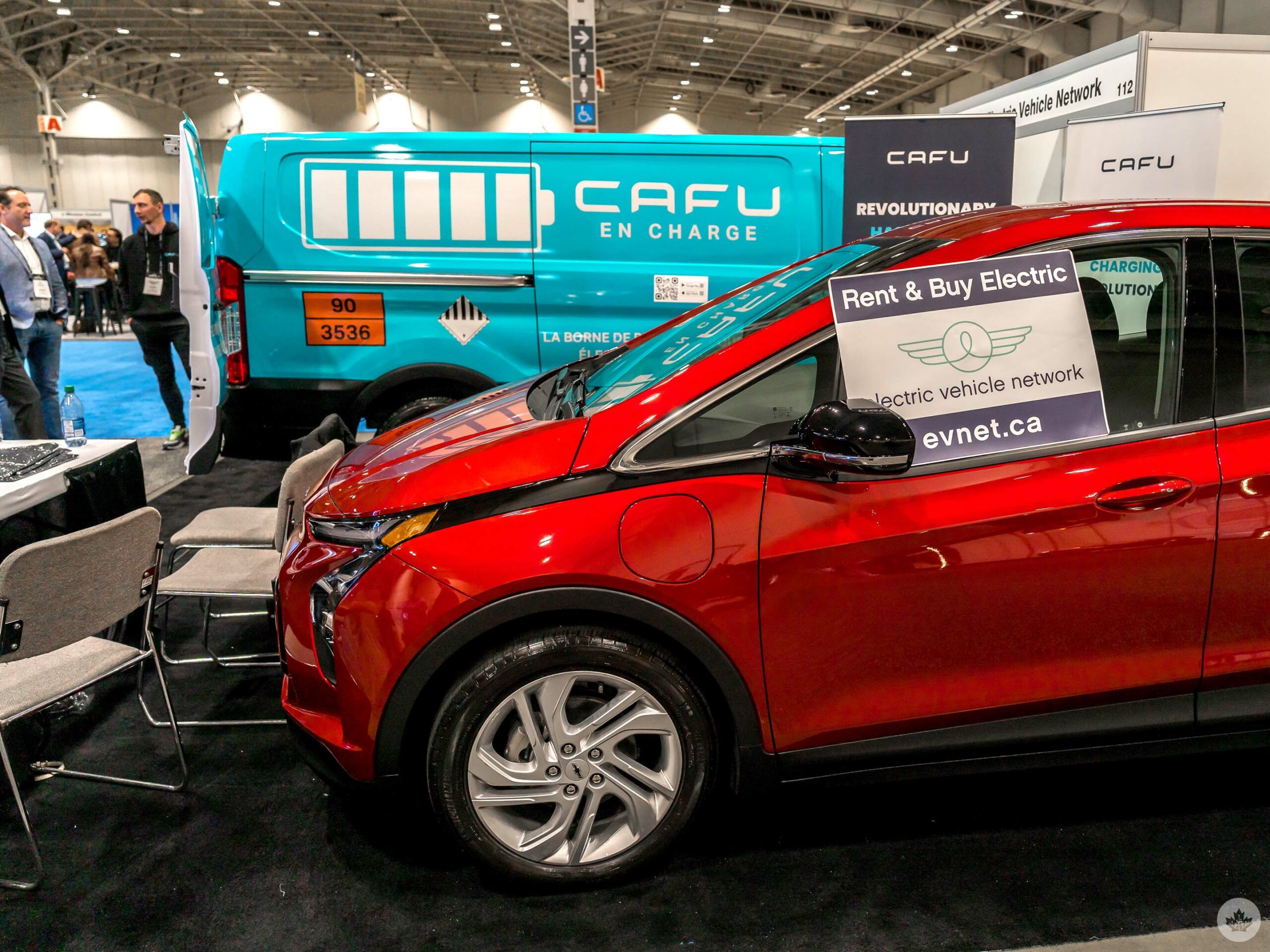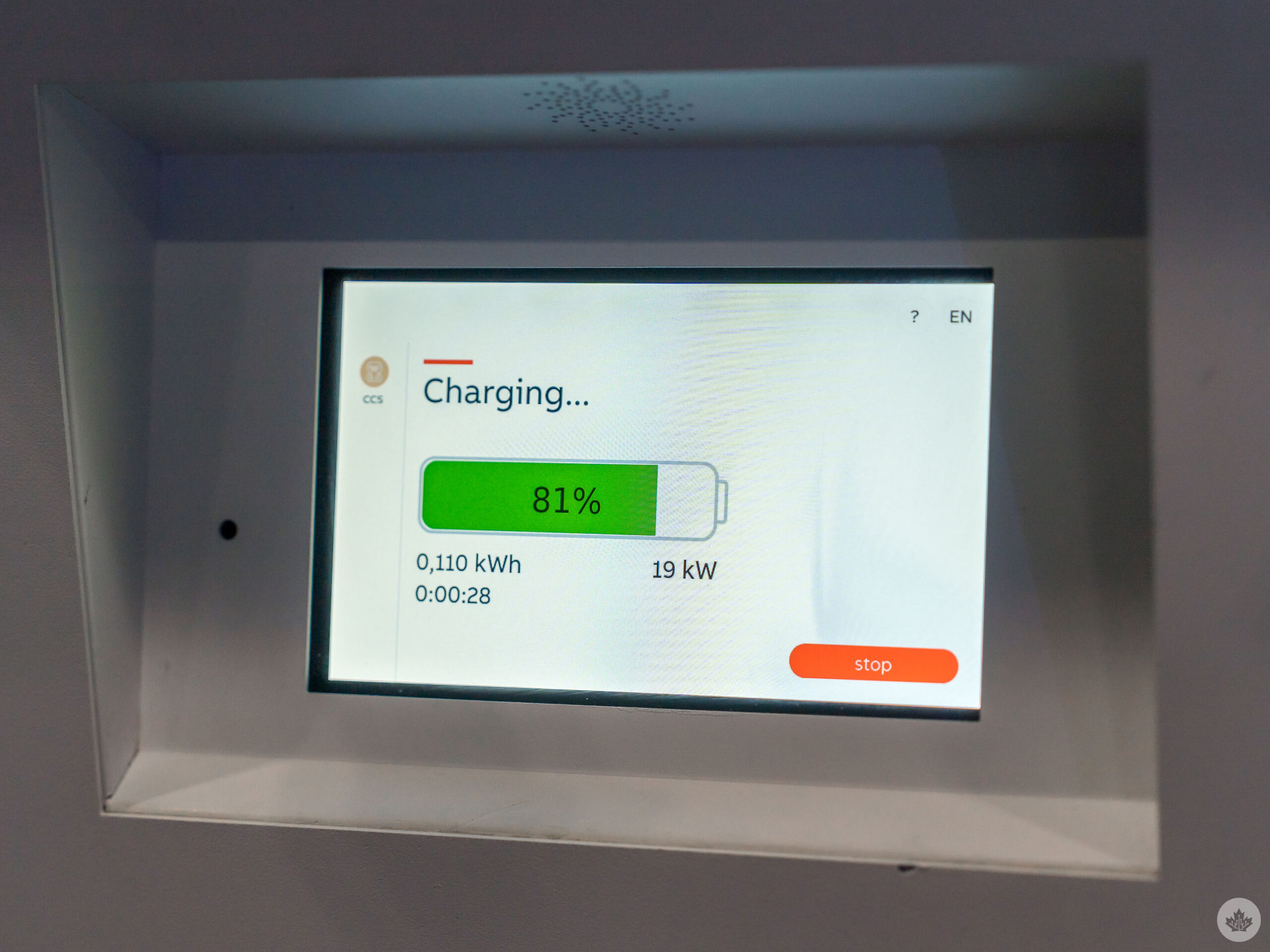
A Montreal pilot project that recently kicked off is setting its sights on expanding to bring mobile electric vehicle (EV) charging to cities across Canada.
Cafu is an on-demand service that dispatches a van or truck with a massive battery inside to charge EVs anywhere within a service area. The business hails from Dubai, which started out in 2018 as a gasoline and diesel mobile delivery service, along with oil changes, tire repair, battery replacement and even car washing. It subsequently added EV charging called Cafu En Charge, allowing people to order on-demand service through the app.

How it works
Cafu En Charge launched in Montreal in March 2023, starting with one Ford E-Transit van equipped with a large battery 140kWh battery pack capable of fast charging an EV at up to 50kW. It has plugs for both Tesla and CCS (Combined Charging System) onboard, enabling it to cater to a majority of the EVs currently on the road.
Users who download the app and set up an account can either schedule an appointment to charge or seek it on demand as soon as possible. It’s Uber-esque in that you apply a payment method to your account where you pay for services rendered.
Those with a home charger may not need this as much as those who don’t, especially for anyone living in a condo or apartment building lacking charging infrastructure. The van can arrive to give your EV a boost while parked at work, or while shopping in a mall, for instance. You, as the EV owner, don’t need to be present to oversee the charge because the app sends notifications to your phone indicating arrival and charging status.
Since you set how much of a charge you want, staff will only top it up as high as you want. Rates start at $0.30 per minute, with “full” charges usually hitting 80 percent. While Cafu won’t say no to getting to 100 percent, it becomes cost-prohibitive considering charging slows to a trickle for that last 20 percent when you’re still paying the same fee per minute.
As of now, staff work two shifts with intervals that avoid morning and afternoon rush hour, which is why it’s possible to charge as early as 7AM and as late as 2AM. They can use the intervening hours to recharge the van’s own battery. At full capacity, the battery can fully charge up to nine vehicles.
Jean-Francois Lapierre, Cafu’s senior vice-president of head of special projects, who is also Quebecois himself, says the pilot started with the one van, but the next stage of the plan is to bring in 20 more that would serve Greater Montreal before vans within that group eventually make their way to other cities, like Toronto and all the way to Vancouver. He didn’t confirm how long that might take, though indicated the powers that be in Dubai are keen on building in the Canadian market.
Why Canada?
Lapierre was on hand at the EV and Charging Expo in Toronto on May 17-18 to showcase the technology and service, citing a handful of reasons why Cafu saw Canada as the ideal entry point for global expansion to North America.
First, federal and provincial government rebates and incentives to buy EVs and install chargers are among the most appealing globally. There’s a sticking point in how quickly charging infrastructure continues to expand, despite the likes of Petro-Canada and Shell adding stations, as well as other vendors doing the same. Some provinces are also increasing funding to incentivize providers to install more chargers in high traffic areas. FLO will also put more chargers into the Greater Toronto Area to help spur EV adoption in Ontario. All told, Natural Resources Canada found the country’s EV charging network grew by 30 percent in 2022.
 More stations would seem to diminish the need for something like Cafu En Charge, yet Lapierre feels the convenience is a big factor, including why a city with plenty of gasoline, like Dubai, embraced the concept of refuelling without visiting or waiting at a gas station. Some people are willing to pay to save time, especially if they have a tighter schedule, he noted. That’s where he sees long-term growth, along with the potential for specialized roadside repairs for EVs.
More stations would seem to diminish the need for something like Cafu En Charge, yet Lapierre feels the convenience is a big factor, including why a city with plenty of gasoline, like Dubai, embraced the concept of refuelling without visiting or waiting at a gas station. Some people are willing to pay to save time, especially if they have a tighter schedule, he noted. That’s where he sees long-term growth, along with the potential for specialized roadside repairs for EVs.
Cafu hasn’t received any rebates or incentives from any level of government, and isn’t asking for any based on details shared with MobileSyrup thus far.
Challenges still remain for the very customers Cafu intends to serve. Condo and apartment buildings require authorization and agreements in order to enter parking garages, negating some of the convenience involved. While it would be possible to set something up whereby a resident parks their car in a spot accessible above ground, for instance, it still requires coordination to pull off. Some office buildings and public parking are also underground, and it’s not clear what Cafu would need to gain approval to enter the premises.
Branching out (maybe) soon
Cafu En Charge says it is committing to turning the pilot into a business expansion that would bring the service to other major cities and municipalities.

For those in Montreal, one van will roam around to serve any EV owner who needs a boost on the go until more of them appear to expand the radius out to surrounding areas. If all that goes well, singular vans will do the same elsewhere to supplement the charging network.
MobileSyrup may earn a commission from purchases made via our links, which helps fund the journalism we provide free on our website. These links do not influence our editorial content. Support us here.



